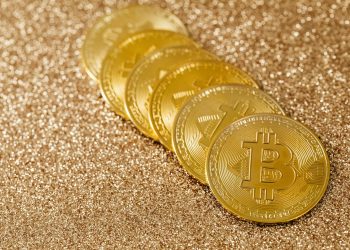While both coins and tokens are digital assets in the cryptocurrency space, they have fundamental differences in their underlying technology and purpose.
- Native to their own blockchain: Coins operate on their dedicated, independent blockchain network. For instance, Bitcoin operates on the Bitcoin blockchain, and Ether on the Ethereum blockchain.
- Primary function as currency: Coins are primarily intended to function as a medium of exchange or a store of value within their respective ecosystems, similar to traditional currencies.
- Used for network fees: Transactions on a blockchain typically require paying a fee, and this fee is paid using the native coin of that blockchain.
- Foundation for other applications: The underlying blockchain of a coin often serves as the foundation upon which other applications, including those utilizing tokens, are built.
- Examples: Bitcoin (BTC), Ether (ETH), Cardano (ADA), Solana (SOL).
- Built on existing blockchains: Tokens are created and operate on top of pre-existing blockchain networks, rather than having their own dedicated blockchain. Ethereum is a popular platform for creating tokens, and many tokens on Ethereum follow the ERC-20 standard.
- Versatile functionality: Tokens offer a broader range of functionalities beyond simply acting as a currency. They can represent assets, grant access to specific services, function as voting mechanisms, or serve as rewards within a project’s ecosystem.
- Created using smart contracts: Tokens are often created using smart contracts on existing blockchains, allowing developers to leverage the established infrastructure rather than building a new network from scratch.
- Examples: Tether (USDT), Chainlink (LINK), Maker (MKR), Uniswap (UNI), non-fungible tokens (NFTs).
One way to think about the distinction is to consider a country’s currency. The currency (e.g., the US dollar) is like a coin, native to that country and used for general transactions. Tickets or loyalty points within a specific amusement park or store, which can be used for specific purposes within that limited ecosystem, are similar to tokens.
The key difference lies in whether a digital asset has its own independent blockchain (coin) or is built upon an existing blockchain (token). While both can be bought, sold, and used to transfer value, tokens generally have a more specific purpose and functionality tied to the projects or applications built on the underlying blockchain.











Which is the best coin or token?
Bitcoin (BTC)
The oldest and most popular crypto token on the market, Bitcoin was the coin that started the entire crypto craze. From its humble beginnings in 2009, it has soared to unimaginable heights and gained the attention of investors, the media and businesses.
What is coin vs token?
In essence, coins function more like traditional currencies, while tokens have broader applications that extend beyond just payments, enabling users to interact with specific projects or ecosystems.
Is shiba inu a coin or token?
Good point! Definition: Shiba Inu (or SHIB) is a token designed to be an Ethereum-compatible alternative to Dogecoin (DOGE). Like DOGE, SHIB is intentionally abundant — with an initial circulating supply of one quadrillion coins.